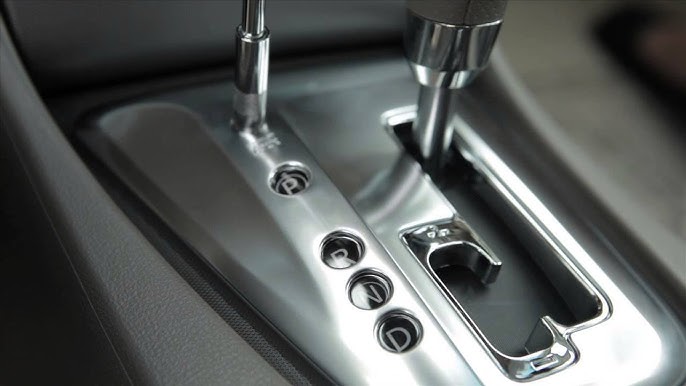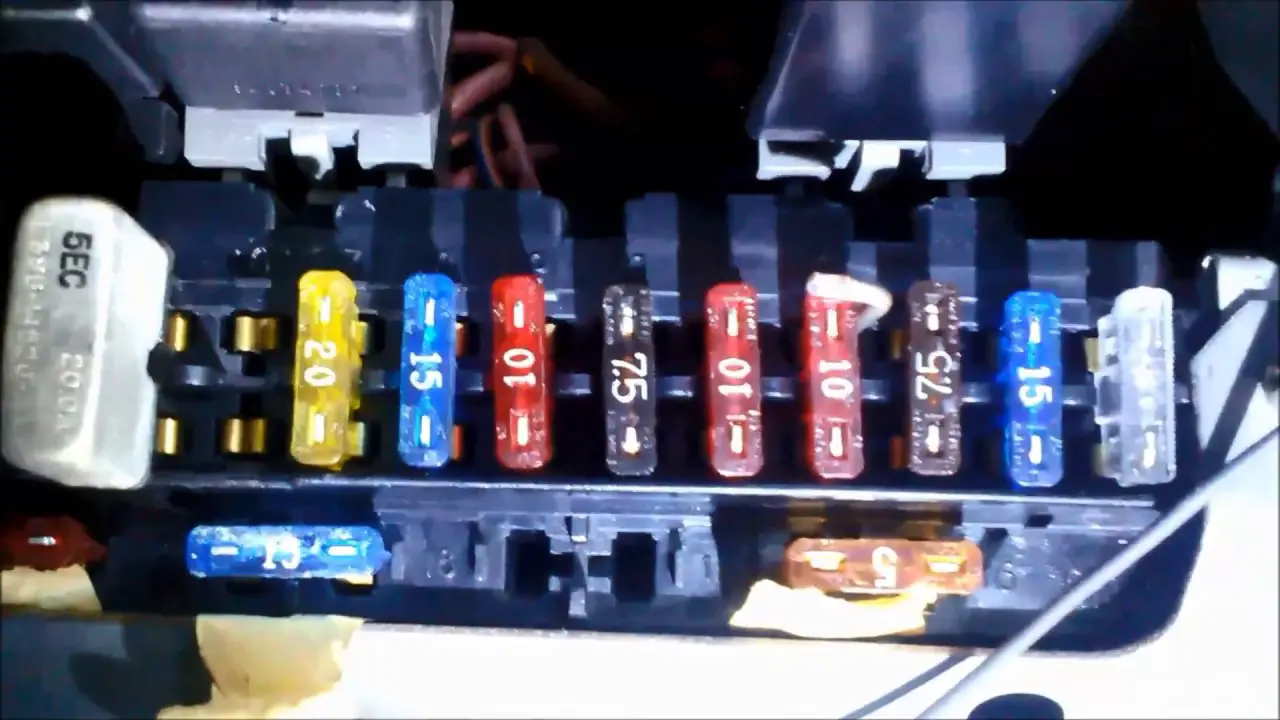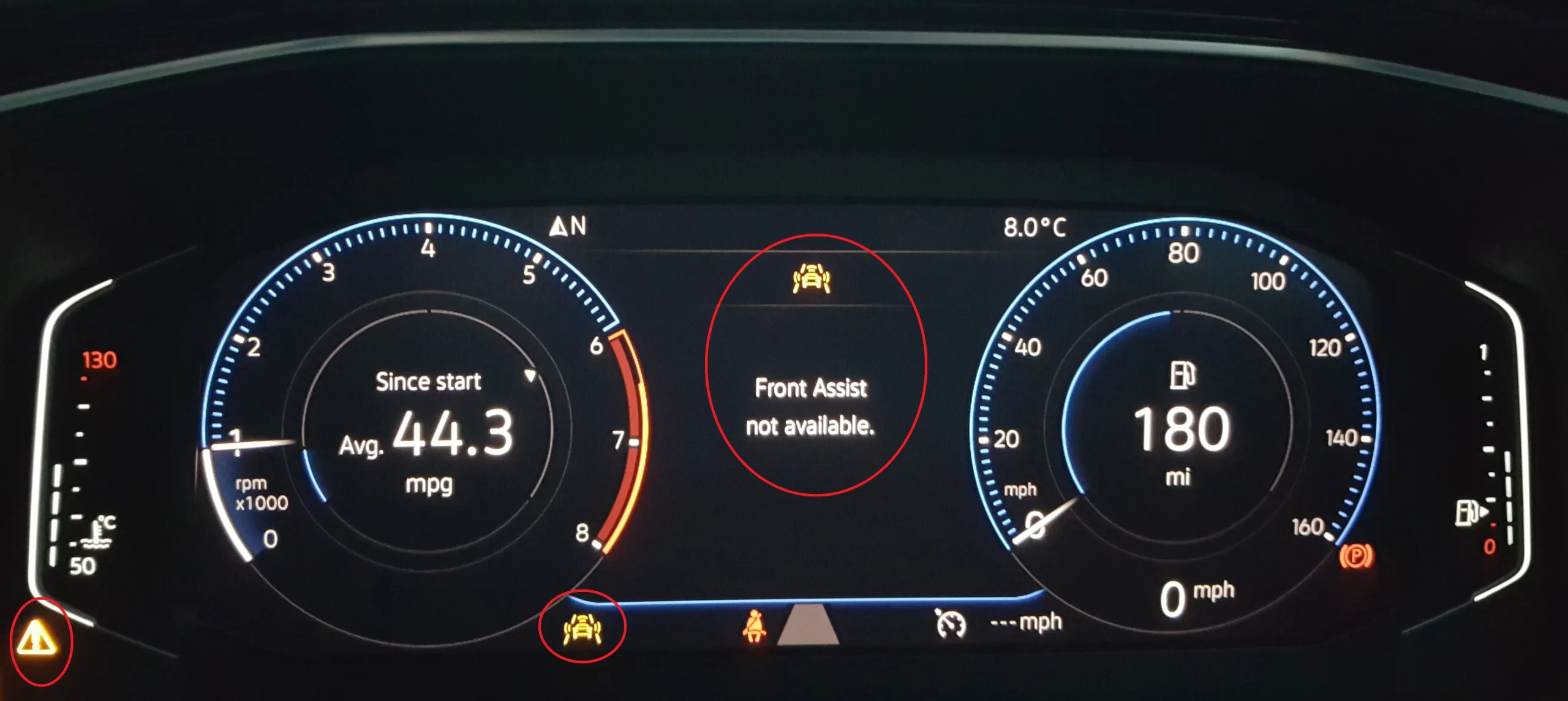If you own a Nissan Altima, you may have experienced problems with the car’s transmission shifting gears.
This can be caused by several factors, including low transmission fluid levels, a faulty transmission filter, or a damaged transmission solenoid.
In some cases, the problem may be caused by a more serious issue, such as a cracked transmission case or a failed transmission pump.
Regardless of the cause, it is important to have the problem diagnosed and repaired as soon as possible to avoid further damage to the transmission.
In this article, we’ll discuss the common Nissan Altima gear shift problems and their causes.
We will also provide solutions to these problems and tips on how to prevent them from happening in the future.
Stay tuned to learn more about how to keep your Nissan Altima running smoothly!
What are some other common problems with Nissan Altima?
Common problems with Nissan Altima include:
-
CVT Transmission Issues
Some Nissan Altima models, especially those equipped with Continuously Variable Transmissions (CVTs), have experienced transmission problems. Issues may include shuddering, hesitation, or failure.
-
Catalytic Converter Failure
Premature failure of the catalytic converter has been reported by some Altima owners. This can lead to issues with emissions and may result in a check engine light.
-
Steering Lock Failure
Certain model years have been reported to experience issues with the electronic steering lock, preventing the vehicle from starting.
-
Oil Consumption
Some Altima models have been reported to consume oil at a higher rate than expected. Owners may notice the need for frequent oil top-ups between regular oil changes.
-
Brake Issues
There have been reports of premature wear on brake pads and rotors, as well as issues with the ABS (Anti-lock Braking System) and brake fluid leaks.
-
Electrical Problems
Owners have reported various electrical issues, including problems with the power windows, door locks, and malfunctioning dashboard displays.
-
Suspension Problems
Complaints about suspension issues, including noise, rattling, and premature wear on components, have been noted by some Altima owners.
-
Airbag System Recalls
Nissan issued recalls for some Altima models due to airbag-related issues. It’s essential to check for any outstanding recalls and address them promptly.
-
Excessive Engine Oil Consumption
Some owners have reported that certain Altima models may consume more engine oil than usual, potentially leading to engine damage if not monitored and addressed.
Nissan Altima Gear Shift Problems
If you are experiencing gear shift problems with your Nissan Altima, there could be several potential causes. Some of the common causes include:
- Low transmission fluid levels: If the transmission fluid level is low, it can cause the gears to shift improperly or not at all. The fluid level should be checked and topped off if necessary.
- Faulty transmission filter: A clogged or damaged transmission filter can also cause gear shift problems. The filter should be replaced if it is found to be faulty.
- Damaged transmission solenoid: The transmission solenoid is responsible for controlling the flow of transmission fluid. If it is damaged, it can cause gear shift problems. The solenoid should be replaced if it is found to be faulty.
- Cracked transmission case: In some cases, the problem may be caused by a more serious issue, such as a cracked transmission case. This can cause the gears to shift improperly or not at all. If this is the case, the transmission case will need to be replaced.
- Failed transmission pump: Another possible cause of gear shift problems is a failed transmission pump. The pump is responsible for circulating the transmission fluid. If it fails, the gears may not shift properly. The pump should be replaced if it is found to be faulty.
What to do when your gear shifter is stuck On Nissan Altima?
If your gear shifter is stuck on your Nissan Altima, there are several possible reasons why this could be happening. One common reason is that the shift lock solenoid is malfunctioning. Another reason could be a problem with the brake light switch, which is responsible for telling the vehicle computer that the brake pedal is depressed.
To fix this issue, you can try the following steps:
- Set the parking brake.
- Find a small shift lock release slot near the shifter covered with a cover.
- Remove the cover and insert the key or a small screwdriver to unlock the shifter; check your vehicle’s owner’s manual for the exact procedure.
What years did the Nissan Altima have a bad transmission?
According to CarComplaints.com, the worst model years for transmission problems in Nissan Altima are the 2013, 2014, and 2012 models.
However, CarDealershipGuy, an anonymous automotive expert and salesman, warns that many Nissan cars (both old and new models) are prone to faulty transmissions.
According to him, you should think twice before purchasing a Nissan Murano produced during the 2015-2021 model years. The Nissan Murano has a history of transmission problems tracing back to at least the 2003 model year, so we’re not surprised.
Owners reported paying as much as $5,000 for a complete transmission replacement. The aforementioned tweet also says to steer clear of Nissan Rogue SUVs and Quest minivans from the 2015-2017 model years. SUV shoppers might also want to avoid buying a 2018-2021 Nissan Pathfinder model.
Many of Nissan’s sedans garner frequent transmission complaints, including Maximas manufactured between 2016-2021.
How much does it cost to fix a shift lock on a Nissan Altima?

The cost of fixing a shift lock on a Nissan Altima can vary depending on the extent of the damage and the location of the repair shop. According to YourMechanic, the average cost for a Nissan Altima shift interlock solenoid replacement is $233 with $138 for parts and $95 for labor. However, according to NissanClub, the entire shifter needs to be replaced if the shift lock solenoid is malfunctioning, which can cost up to $459 for the part alone.
How do I know if my Nissan Altima transmission is bad?
There are several signs that your Nissan Altima transmission might be bad. Here are some of the most common symptoms:
-
Slipping clutch
If your clutch is slipping, it means that there is too much play in the clutch, so it doesn’t engage properly. The most common sign of a slipping Nissan Altima transmission is jerking when trying to accelerate.
-
Transmission fluid leaking
Leaks are often more obvious than other problems, but they can still be difficult to diagnose. A leak means that some of the transmission fluid is draining from the car, which means that there is likely a bigger issue with your transmission’s seals or gaskets.
-
Vibrations when accelerating
If your car vibrates when you are accelerating, it means that the transmission is slipping. Sometimes this can be fixed by removing debris buildup in your Nissan transmission. Another possible cause of vibrations while accelerating is a problem with your torque converter.
-
Problems when shifting gears
If you are experiencing problems shifting gears, your transmission might not properly engage or disengage gears during acceleration and deceleration.
-
Strange noises
If you hear strange noises coming from your transmission, it could be a sign of a bad transmission. These noises can include growling, whining, or grinding sounds.
What does it mean if my gears are not shifting and stuck On Nissan Altima?
If your Nissan Altima’s gears are not shifting and are stuck, it could be due to a variety of reasons. According to a source, the following are some of the most common causes of shifting problems in Nissan Altima:
-
Transmission Control Module Problem
The transmission control module is vital to a car’s automatic transmission. It allows the engine to identify the correct time to change gears. A healthy control module delivers a smooth, seamless driving experience. What happens when it fails? The Nissan Altima will warn you by manifesting various concerning symptoms. For instance: Shifting down will become a challenge when you slow down. Shifting up will also become harder when you accelerate. This will create acceleration delays. The car may refuse to shift out of neutral. The gears will start slipping. You will observe shifting delays. The ‘Check Engine’ light will illuminate. The Nissan Altima’s fuel economy will suffer. These symptoms point to a faulty transmission control module. A bad transmission control module is a threat to your safety. Fix it as soon as possible.
-
Dirty Transmission Fluid
Dirty ATF is a poor lubricant, which is problematic because the parts it should cool and lubricate will wear out at a faster rate. If you haven’t changed your transmission fluid in a while, it could be dirty and cause your gears to stick. You can check the transmission fluid level and the presence of various contaminants to see if this is the issue.
-
Steering Wheel Issue
If the vehicle refuses to shift from Park to Drive, you’ve pressed the button, but nothing is happening. Fidgeting with the shifter won’t solve the problem. Yes, you can probably force it out of Park, but from what your mechanic has seen, doing so may cause more damage. You can blame the issue on the steering wheel. Apparently, locking the steering wheel to one side can interfere with the shifter’s work. Try forcing the steering wheel back to the other side. Make sure it can move freely. If this fails to solve the problem, you have bigger issues on your hands. Take the car to a mechanic before things get worse.
-
Bad AT Selector Switch
An electronic sensor speaks to the ECM. In other words, a bad AT selector switch can prevent the car from shifting gears because it won’t signal the ECM.
-
Clutch Master Cylinder Problem
If your vehicle has a manual transmission, you can blame the clutch master and slave cylinders.
What are Nissan’s weaknesses?
Nissan, a Japanese automotive manufacturer, has faced several challenges in recent years. According to a source, some of Nissan’s weaknesses are:
- Poor marketing and advertising capabilities resulting in poor brand awareness: Nissan has struggled to create a strong brand identity due to its poor marketing and advertising capabilities. This has resulted in low brand awareness among consumers.
- Massive product recalls in the U.S.: Nissan has had to recall millions of vehicles in the U.S. due to various defects. This has led to a loss of consumer confidence in the brand.
- Inefficient operations: Nissan has faced internal issues such as inefficient operations, high costs, and a lack of focus on innovation, impacting the company’s performance.
- Financial difficulties: As of 2021, Nissan has faced financial difficulties with declining profits and sales for several years. This has also impacted its share price and investor confidence.
- Reputation damage: The arrest and subsequent legal issues surrounding former Chairman Carlos Ghosn have affected Nissan’s reputation.
What is the average lifespan of Nissan Altima?
Nissan Altimas can last as long as 200,000 to 300,000 miles if they are properly maintained. This means that the car can deliver 13 to 20 years of reliable performance. However, the lifespan of a Nissan Altima can vary depending on several factors such as driving habits, maintenance, and environmental conditions.
FAQs
What is the fuel economy of Nissan Altima?
The fuel economy of Nissan Altima varies depending on the model year and engine type. The 2022 Nissan Altima gets an estimated 28-39 mpg on the highway and 25-28 mpg in the city.
What is the price of Nissan Altima?
The price of Nissan Altima varies depending on the model year and trim level. The 2022 Nissan Altima starts at $24,350 for the S trim and goes up to $36,550 for the Platinum trim.
What is the warranty on Nissan Altima?
The warranty on Nissan Altima includes a basic warranty of 3 years/36,000 miles, a powertrain warranty of 5 years/60,000 miles, and a corrosion warranty of 5 years/unlimited miles.
What is the difference between Nissan Altima S and SV?
The Nissan Altima S and SV are two different trim levels of the Nissan Altima. The SV trim level comes with additional features such as a power-adjustable driver’s seat, dual-zone automatic climate control, and a larger infotainment screen.
What is the difference between Nissan Altima and Maxima?
The Nissan Altima and Maxima are two different models of Nissan sedans. The Maxima is a larger and more luxurious sedan than the Altima. The Maxima also comes with a more powerful engine and more advanced features than the Altima.
What is the difference between Nissan Altima and Sentra?
The Nissan Altima and Sentra are two different models of Nissan sedans. The Altima is a midsize sedan, while the Sentra is a compact sedan. The Altima is larger and more powerful than the Sentra, and it comes with more advanced features.
What is the difference between Nissan Altima and Accord?
The Nissan Altima and Honda Accord are two different models of midsize sedans. The Accord is known for its reliability and fuel efficiency, while the Altima is known for its sporty handling and advanced features.
What is the difference between Nissan Altima and Camry?
The Nissan Altima and Toyota Camry are two different models of midsize sedans. The Camry is known for its reliability and fuel efficiency, while the Altima is known for its sporty handling and advanced features.
Also Read: Toyota Camry Maintenance Required Light Reset: A Step By Step Guide
Conclusion
Nissan Altima gear shift problems can be caused by several factors, including low transmission fluid levels, a faulty transmission filter, or a damaged transmission solenoid.
These issues can lead to serious damage to the transmission if not diagnosed and repaired promptly.
In addition to gear shift problems, Nissan Altima has been reported to have several other issues such as engine stalling, thermostat getting stuck closed, check engine light due to oil leak, and front struts wearing out sooner than expected.
Regular maintenance and inspections can help prevent these issues from occurring in the first place.
If you are experiencing any of these issues, it is important to have your vehicle inspected by a qualified mechanic.
We hope this article has provided you with all the information you need to keep your Nissan Altima running smoothly.
Thank you for reading!




